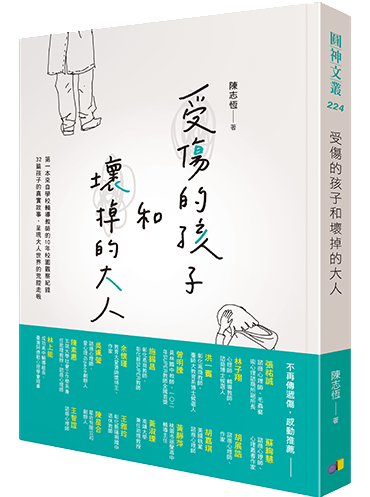As school environments change, so do the burdens that fall on students’ shoulders. High expectations and the stimulus of the digital age mean many young people are born into an “age of powerlessness” that traps them in patterns of negative behavior. But helping our children requires saving ourselves first.
As author Chen Chih-Heng astutely points out, raising children is hard because “everyone knows the problems, but no one knows the solutions.” Apathy, insolence, reclusion, and other difficult child behaviors are familiar to every parent, but the unique pressures of today’s school environment can make it very difficult for parents and children to bridge the knowledge gap. So we end up talking past our children, teaching them inappropriately or even abusively, all while our children are silently learning from our very imperfect example.
In Wounded Children, Broken Adults Chen Chih-Heng employs over a decade of firsthand experience as a school counselor to describe in plain language the trials that today’s children are facing at school and at home, and how parental guidance can intensify or ameliorate the effects of that experience. Excessive schoolwork and testing burdens plus authoritarian, fear-based parenting teach children to turn off their creative minds, engage as little as possible, and steal rest whenever they can, all while setting them up to enforce those same standards as adults.
Chen reminds us: helping our children primarily involves helping and improving ourselves. We model engagement, curiosity, and fluent communication to inspire it in them. We show them how to pause, how to appreciate the present moment, and how to pursue ideas. Then we give them the power to make their own decisions and opportunities to earn our trust.
